RESERVE BANK OF AUSTRALIA
Transportation infrastructure significantly contributes to a nation’s prosperity by facilitating workers’ access to employers, consumers’ access to shopping and leisure activities, and firms’ access to capital, labour and potential customers. The public sector has generally provided the vast amount of a nation’s infrastructure – roadways, waterways, railways and airways – and expanded it to satisfy users’ growing demand for transportation. But as demand has increased and ageing infrastructure facilities have required ever-greater funds for maintenance and new construction, capacity has become increasingly strained and travellers and shippers have experienced more congestion and delays. Policymakers have tried to find new sources of money to finance projects to expand capacity; but congestion and delays have persisted.
Posts Tagged ‘Brookings Institution’
How the Private Sector Can Improve Public Transportation Infrastructure
Monday, August 4th, 2014Beyond Shovel-Ready: The Extent and Impact of U.S. Infrastructure Jobs
Monday, May 19th, 2014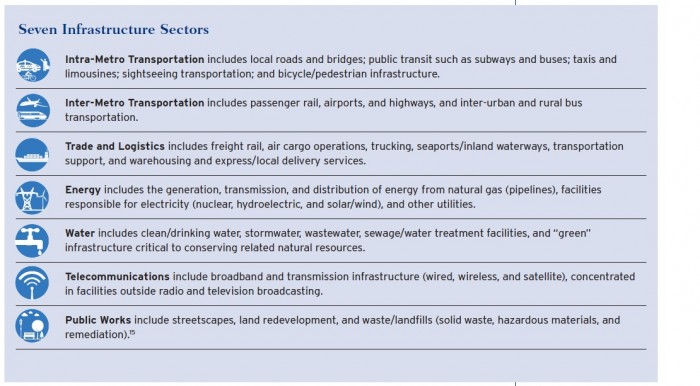
METROPOLITAN POLICY PROGRAM
BROOKINGS INSTITUTION
This report sheds new light on the widespread contributions that infrastructure jobs make to the nation’s economy, including their importance at the metropolitan level. Since many of these jobs offer more equitable wages, require less formal education for entry, and are projected to grow over the next decade, they represent a key area of consideration for policymakers aiming to address the country’s ongoing infrastructure and jobs deficit.
Guest on The Infra Blog: Robert Puentes, Senior Fellow, Brookings Institution’s Metropolitan Policy Program
Monday, May 12th, 2014
Robert Puentes is a senior fellow with the Brookings Institution’s Metropolitan Policy Program where he also directs the program’s Metropolitan Infrastructure Initiative. The Initiative was established to address the pressing transportation and infrastructure challenges facing cities and suburbs in the United States and abroad.
“There’s no doubt that the paralysis in Washington is real and pervasive. I think we overemphasize, though, the federal role in a lot of this…I think, in fact, the federal paralysis is making states, cities, metropolitan areas experiment with a whole host of different things in order to get projects done.”
View this complete post...Metro Freight: The Global Goods Trade that Moves Metro Economies (REPORT)
Thursday, October 24th, 2013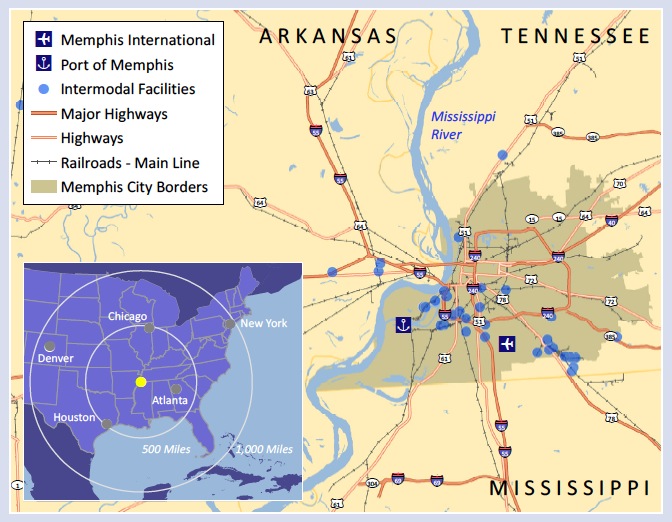
BROOKINGS INSTITUTION
One of the lessons from the Great Recession is the need to grow and support the tradable sectors, typically manufacturing and high-end services, of our metropolitan economies. But to drive these tradable sectors, metropolitan areas need physical access to markets. Metropolitan freight connectivity enables this access and the ensuing modern global value chains. Without it, trade cannot occur.
Metro Freight: The Global Goods Trade that Moves Metro Economies (VIDEO)
Thursday, October 24th, 2013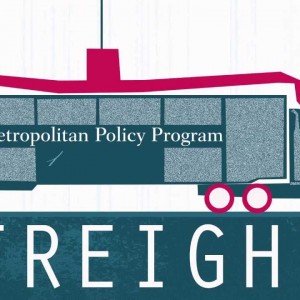
This video highlights how the trading of goods is the lifeblood of metropolitan economies. The Metro Freight research series by the Metropolitan Policy Program at Brookings assesses goods trade at the metropolitan scale. It uses a unique and comprehensive database to capture all the goods moving in and out of U.S. metropolitan areas, both domestically and beyond. The reports in the series will describe which goods move between metropolitan areas, how they move via different modes of transportation, and uncover the specific trading relationships between U.S. metropolitan areas as well as their global counterparts.
View this complete post...On the Performance of the U.S. Transportation System: Caution Ahead
Thursday, October 3rd, 2013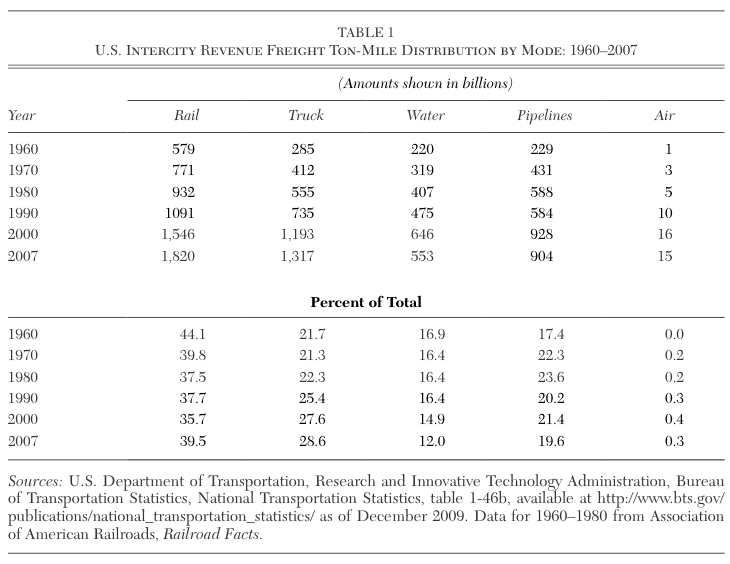
BROOKINGS INSTITUTION by Clifford Winston Introduction Transportation is a friction—a cost in both money and time—that must be incurred by individuals and firms to complete almost any market transaction. An efficient and extensive transportation system greatly enriches the standard of living in modern society by reducing the cost of nearly everything in the economy; expanding […]
View this complete post...INVEST BUT REFORM: Establish a National Infrastructure Bank
Monday, August 26th, 2013BROOKINGS INSTITUTION
Congress should establish a National Infrastructure Bank (NIB) capitalized with the proceeds from a onetime repatriation tax holiday. The primary barrier to an NIB—a targeted mechanism for financing infrastructure projects of national significance— is finding a way to build the loan fund. Untaxed overseas corporate profits, which currently provide little support to overstretched federal budgets, represent an untapped revenue source that could quickly fund an NIB, without a direct appropriation.
The Critical Infrastructure Gap: U.S. Port Facilities and Cyber Vulnerabilities
Monday, August 19th, 2013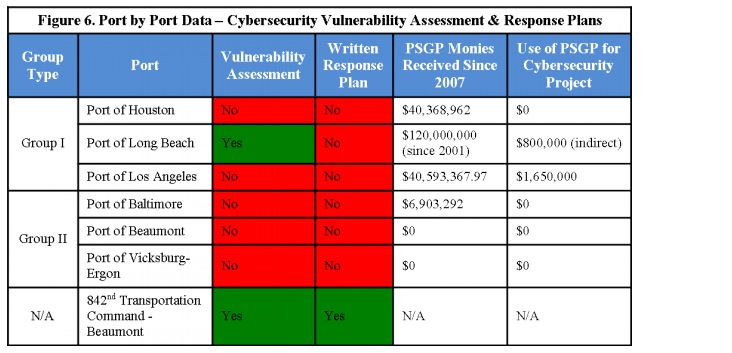
BROOKINGS INSTITUTION
BROOKINGS CENTER FOR 21ST CENTURY SECURITY AND INTELLIGENCE
Today, U.S. port facilities rely as much upon networked computer and control systems as they do upon stevedores to ensure the flow of maritime commerce that the economy, homeland, and national security depend upon. Yet, unlike other sectors of critical infrastructure, little attention has been paid to the networked systems that undergird port operations. No cybersecurity standards have been promulgated for U.S. ports, nor has the U.S. Coast Guard, the lead federal agency for maritime security, been granted cybersecurity authorities to regulate ports or other areas of maritime critical infrastructure.
Strengthening America’s Commitment to Passenger Rail
Tuesday, March 5th, 2013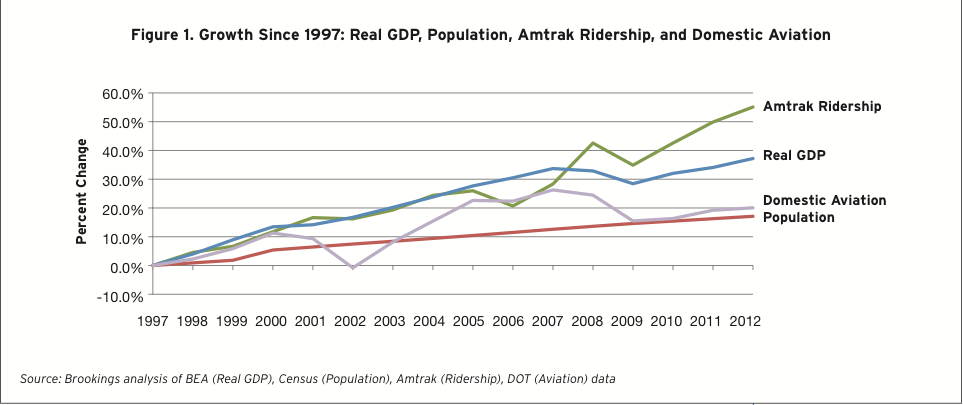
BROOKINGS INSTITUTION
American passenger rail is in the midst of a renaissance. Ridership on Amtrak—the primary U.S. carrier—is now at record levels and growing fast. This research shows that the country’s 100 largest metropolitan areas are primarily behind this trend, especially ten major metros responsible for nearly two-thirds of total ridership.
Export Nation 2012: How U.S. Metropolitan Areas Are Driving National Growth
Friday, March 9th, 2012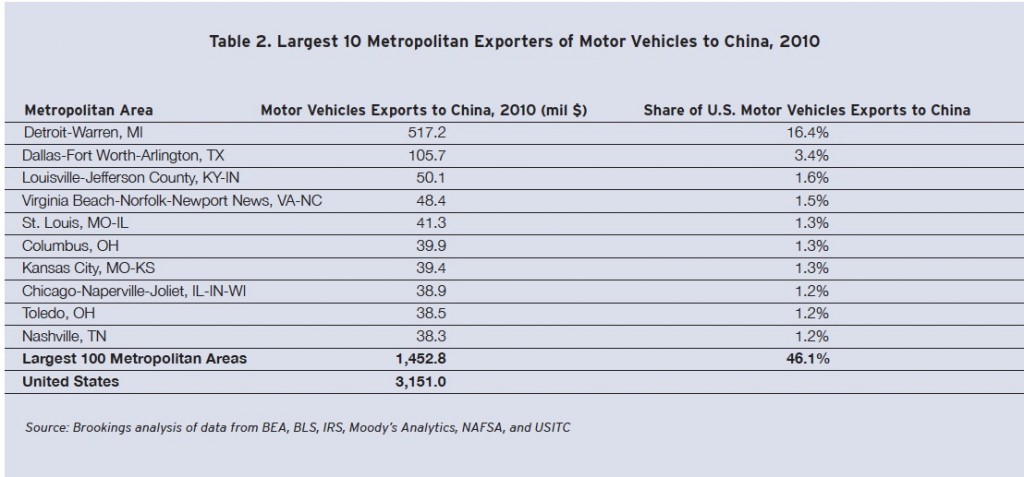
BROOKINGS INSTITUTION
The Great Recession reset the world economic map. Suddenly, with the bulk of the world’s economic growth transferred beyond the borders of a recession-mired West and into emerging markets, American metropolitan areas and the nation as a whole were left to cast about for new sources of growth.
Follow InfrastructureUSA
CATEGORIES
- Accountability (219)
- Aging Infrastructure (758)
- Aviation (130)
- Biking (324)
- Bipartisan (271)
- Bridges (493)
- Broadband (57)
- Buses (160)
- Carbon Tax (22)
- Clean Air (182)
- Climate Change (202)
- Competitiveness (230)
- Congestion (327)
- Dams (77)
- Democrat (123)
- Drinking Water (192)
- Economic Stimulus (276)
- Employment (207)
- Energy (585)
- Environment (615)
- Equity (239)
- Funding (888)
- Global (205)
- Great American Infrastructure (33)
- Green (295)
- Guests on The Infra Blog (300)
- Hazardous Waste (27)
- High Speed Rail (224)
- Highway (785)
- Inland Waterways (204)
- Jobs (251)
- Land Use (99)
- LEED (28)
- Levees (42)
- Local (1,910)
- National (1,527)
- Policy (1,122)
- Pollution (215)
- Private Investment (213)
- Public Opinion (189)
- Public Parks & Recreation (198)
- Public Transportation (1,028)
- Racism (6)
- Rail (506)
- Recession (65)
- Recovery (218)
- Republican (109)
- Roads (1,120)
- Schools (81)
- Seaports (69)
- Smart Grid (98)
- Smart Growth (442)
- Solid Waste (26)
- Sustainability (767)
- Tax (112)
- Technology (397)
- Telecommunications (46)
- Transit (1,333)
- Urban Planning (983)
- Wastewater (183)
- Water Treatment (168)
Video, stills and tales. Share images of the Infra in your community that demands attention. Post your ideas about national Infra issues. Go ahead. Show Us Your Infra! Upload and instantly share your message.
Is the administration moving fast enough on Infra issues? Are Americans prepared to pay more taxes for repairs? Should job creation be the guiding determination? Vote now!
What do the experts think? This is where the nation's public policy organizations, trade associations and think tanks weigh in with analysis on Infra issues. Tell them what you think. Ask questions. Share a different view.
The Infra Blog offers cutting edge perspective on a broad spectrum of Infra topics. Frequent updates and provocative posts highlight hot button topics -- essential ingredients of a national Infra dialogue.
Dear Friends,
It is encouraging to finally see clear signs of federal action to support a comprehensive US infrastructure investment plan.
Now more than ever, our advocacy is needed to keep stakeholders informed and connected, and to hold politicians to their promises to finally fix our nation’s ailing infrastructure.
We have already engaged nearly 280,000 users, and hoping to add many more as interest continues to grow.
We require your support in order to rise to this occasion, to make the most of this opportunity. Please consider making a tax-deductible donation to InfrastructureUSA.org.
Steve Anderson
Managing Director
SteveAnderson@InfrastructureUSA.org
917-940-7125













 RSS Feed
RSS Feed